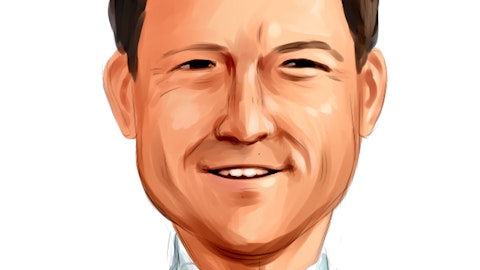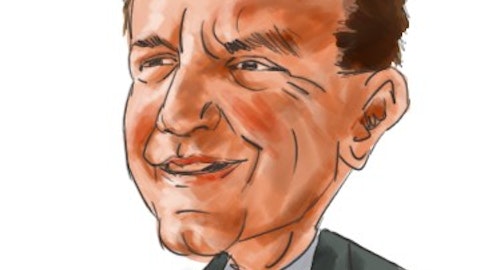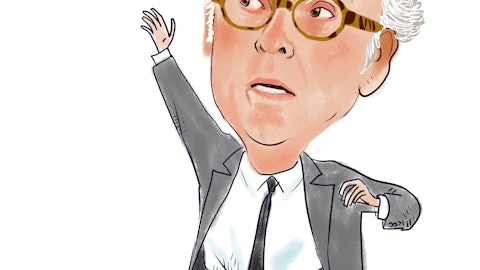Gary Tenner: Okay. And then I saw you took the loss on sale of securities. Did you reinvest that? And if so, what was the yield pickup and €“ well, the yield pickup of those €“ that reinvestment?
Heng Chen: Actually, we had no losses. That was a mark-to-market for equity securities. But we €“ in the fourth quarter, we had pretty light investing. I think we bought $75 million of corporates. They were in the 5.5% range, callable corporates. And then we bought some MDS, they were in the high-4s.
Gary Tenner: Okay. Thanks for that interpretation. I think I must have misread that in your press release. And then last question I had in terms of capital. And you kind of read through the kind of where capital is at year end, you did buy some stock back, but less than you did in the third quarter. Just thoughts about buyback in 2023. Is there any element of kind of economic uncertainty that might keep you on the sidelines, or would you still be a buyer of your stock in €˜23?
Chang Liu: Yes. We still have about $15 million €“ $16 million left in our buyback €“ current buyback authorization. So, we would use that up in the first quarter and then our plan is to get Fed approval €“ apply for approval for another $125 million. And given the relatively weak loan growth, we might €“ subject to economic conditions, we might try to use up most of that in 2023.
Gary Tenner: Thank you very much.
Chang Liu: Yes. Thank you.
Operator: Our next question comes from Andrew Terrell with Stephens. Please go ahead.
Andrew Terrell: Hi. Good afternoon.
Chang Liu: Hi.
Andrew Terrell: If I could maybe start on just the expenses, the guidance for 3.5% expense growth in 2023. It feels like that might be a bit light versus kind of over hearing across the industry, just given inflationary impacts. So, I was hoping you could speak to maybe just some of the puts and takes as we think about expenses through 2023 and kind of the progression of the quarterly expense base.
Chang Liu: Andrew, we have gone through already half price significantly more than half of our population during the last October’s review process. So, that’s why you saw some of the core non-interest expense increase in the salary section at the Q4 numbers. And then we have a second round of the officers and higher reviews that will come up in March, and our objective is to hold that number to the 3.5% range.
Andrew Terrell: Understand. Okay. And then maybe if I could go back to the margin, just thinking about the €“ I know you had the spot rate on the deposit cost at the end of the quarter. Do you happen to have the spot yield on the securities portfolio at the end of the quarter?
Heng Chen: Not on the securities. We have it on the loans, if you wanted. Well, on the securities, I have the December securities, it’s 2.72%.
Andrew Terrell: Okay. That works. And then I think I just want to make sure I heard it correctly. The €“ so like the new kind of offering rate on CDs is around low kind of 4% territory, 4.2% or so. I guess just thinking about the duration of the CD book, should we expect CD costs to, kind of over the next 12 months or throughout 2023, kind of fully re-priced to that low 4% territory?





